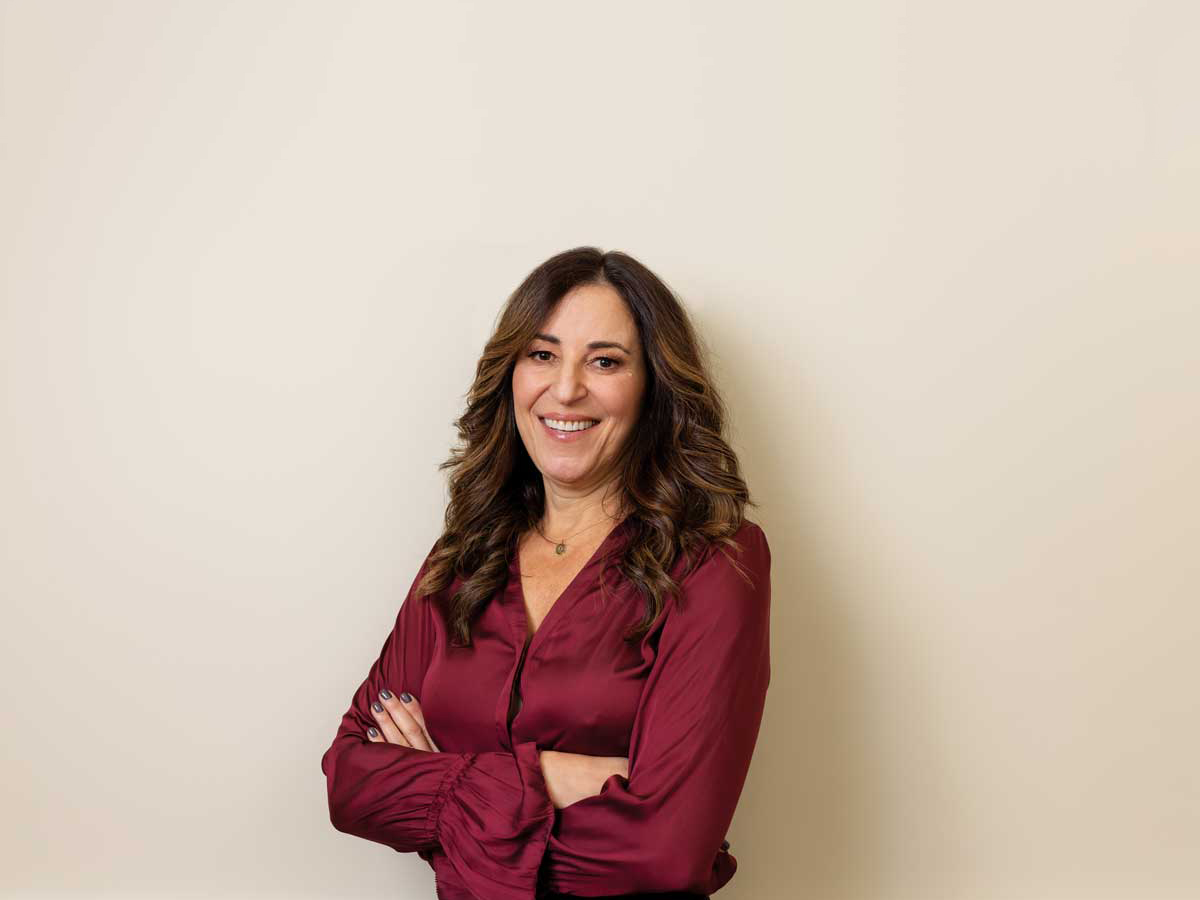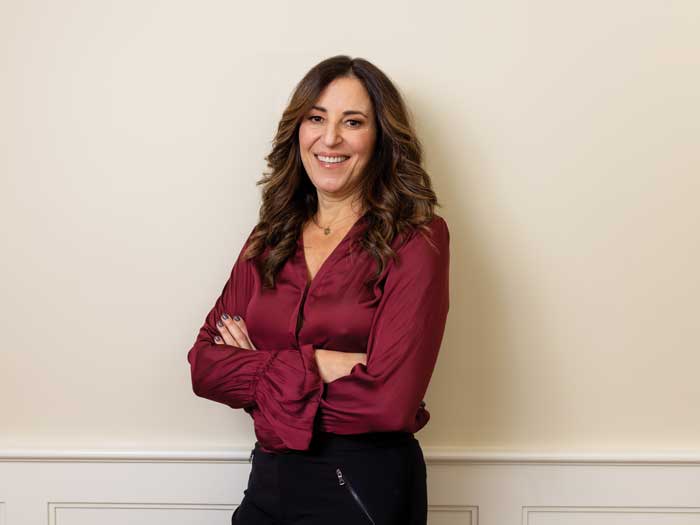
This CPA uses her skills and experience to pay it forward
 CPA Robin Taub is the author of the best-selling CPA Canada publication, A Parent’s Guide to Raising Money-Smart Kids (Photograph by Kayla Rocca)
CPA Robin Taub is the author of the best-selling CPA Canada publication, A Parent’s Guide to Raising Money-Smart Kids (Photograph by Kayla Rocca)
Soon after the 2008 financial crisis plunged the world into a recession, the Canadian government established a task force to develop a national strategy to improve the financial literacy of Canadians and help them make responsible monetary decisions.
Enter Robin Taub. Hailing from a family of accountants (her husband, Jonathan, as well as her brother and father-in-law are all CPAs), she started her career with Big Four firms KPMG and EY before venturing into investment banking with Citibank. After launching her own business to focus on creating financial content for other companies, Taub was inspired by the financial crisis to address a critical gap the taskforce identified: helping parents teach their children about money.
In 2011, she wrote A Parent’s Guide to Raising Money-Smart Kids, a bestselling handbook for parents looking to teach the ins and outs of sound money management. Since then, Taub has created parental-focused financial education content for clients such as Intuit TurboTax, RBC, TD and Tangerine Bank.
Now, with an award-winning update to her book, titled The Wisest Investment: Teaching Your Kids to Be Responsible, Independent and Money-Smart for Life, available now (David Chilton of The Wealthy Barber and Dragons’ Den fame is a fan), she plans on introducing her no-nonsense practical financial advice to a new generation of parents and children in the post-pandemic world.
PIVOT: Why is it so important to make sure our children are financially literate?
ROBIN TAUB (RB): Managing money is a crucial life skill. Possessing basic financial knowledge gives you the means to look after yourself and your family, as well as the freedom to pursue the things that are most important to you. If you don’t develop good money habits at a young age, you can end up adopting some very bad habits that become difficult to break as you get older—when the stakes are much higher and you might have a mortgage and family depending on you. Money is also the biggest source of stress for most people these days. Personally, my inspiration came from my desire to instill healthy habits early on in my two children, Justin and Natalie.
PIVOT: What did the financial education of your kids look like?
(RB): It didn’t start as a conscious decision, but since my husband and I are both CPAs, we just naturally openly talked about money in our household. It was never a taboo subject. Over time, we incorporated age-appropriate money lessons into our children’s day-to-day lives. Initially, it was simple things like explaining where the money that pops out of an ATM comes from and the difference between debit and credit cards. As they got older, I opened investment accounts for them, explaining the process the entire way.
When it was time for them to go off on their own to university, I made sure they knew how to do things like pay bills and budget their spending. And all that effort paid off. My daughter is now a CPA working on getting her CFA designation and my son is a freelance musician and entrepreneur who takes care of his own taxes. There’s an old accounting joke with a lot of truth in it: if you do your kids’ taxes once, you’re going to be doing them forever. But if you teach them how to do their taxes once, then they’ll always do it for themselves—hopefully!
PIVOT: How did your kids’ financial education translate into your book?
(RB): I wanted to take my knowledge and experience as a parent and CPA and turn it into a simplified road map for other parents to help teach their kids. CPA commissioned me to write the book. It was their first consumer publication that wasn’t for accountants. And it was published in English, French and available as an e-book.
I structured A Parent’s Guide to Raising Money-Smart Kids into five chapters. Each chapter is then structured into what I call the “five pillars of money”: earn, save, spend, share and invest. In every chapter, I provided specific examples for those five pillars, while also offering ideas for family discussions and activities to teach them.
PIVOT: What kind of impact has your book has had?
(RB): As sponsor of my first book, RBC sent me on speaking tours at their branches in British Columbia. I also spoke at high schools in parts of Ontario, which gave me the opportunity to meet a lot of parents. The feedback from them was incredible: many parents told me they wish they’d been taught with a book like mine when they were young. To this day, I still get letters and emails from parents thanking me for writing the book or telling me that I inspired them to do little things like open bank accounts for their kids.
Coincidentally, around the same time my book was first published, Ontario integrated financial education on practical things like budgeting for life after high school into its curriculum from grades four to 12. Other provinces have introduced similar courses. These efforts are visibly paying off. Canada recently came second (tied with Finland) in a ranking of OECD countries when it comes to youth financial literacy.
PIVOT: If you could teach all children a couple key financial skills that would benefit them the most in their lives, what would those skills be?
(RB): My first piece of advice is to save by paying yourself first, which means taking a little bit from your income and putting it into a separate savings or investment account. Ideally, you should set up an automatic transfer of a specific sum to that account every time you get paid. Secondly, it’s super important to know where your money’s going. The best way is to track your spending and that information can help you create a budget that’s realistic. Pretty much every big bank has tracking tools on their mobile apps that can easily put together a real-time budget for you. The numbers don’t lie. If you don’t know your numbers, you don’t really know what’s going on.
PIVOT: Same question regarding parents: what should they focus on when it comes to providing their kids with a financial education?
(RB): Parents should implement three strategies: 1. Figure out your personal values—the things in life that are most important to you—and use them as a framework to guide your financial decisions and set meaningful goals. To help parents do that, I created a tool called the Values Validator which is in my book and available for free on my website. 2. Look for teachable moments to build money lessons into your daily lives. 3. Be a good financial role model and lead by example. Our kids are constantly watching and listening and learning from us. They’re absorbing our values and habits around money, so having your house in order will influence them to do the same.
PIVOT: What’s next for you?
(RB): I now speak primarily to financial advisers and their clients and I’m hoping to do more speaking engagements in the US. We get lots of requests to use the content in the book for workshops and for courses, so we are looking into possibly licensing it. And we will continue to work with some of the great brands and partners we’ve established over the years (like Intuit and Tangerine).
MEET OTHER INSPIRING CPAS
Learn how Manjit Singh, SunLife EVP and CFO continues to embrace challenges and how these three CPAs are charting innovative paths to the future.